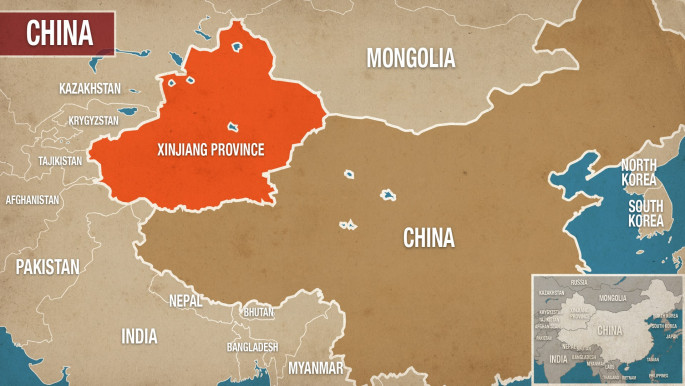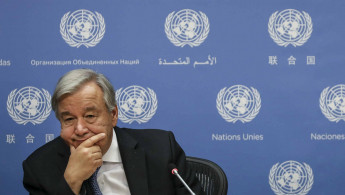UN chief rejects claim he didn't condemn China over treatment of Muslims
UN Secretary-General Antonio Guterres has strongly rejected claims by five human rights groups that he has failed to condemn the Chinese government's detention of more than a million Muslims in the Xinjiang region, saying he has spoken out forcefully.
"I don't think anyone has been more persistent and more clear in talking to the Chinese authorities in relation to this issue than myself," he told reporters Wednesday.
"It is absolutely not true that I've only done discreet diplomacy."
On the contrary, Guterres said that during his visit to Beijing in April, "I not only did raise the issue, but I made it public".
The five rights groups said in a letter to the secretary-general circulated Tuesday that he would make an important contribution to addressing "one of the most pressing human rights issues of our time" by speaking out against China's internment of the Uighurs and members of other predominantly Muslim ethnic groups and calling for the immediate closure of detention camps for them.
 |
The letter was signed by Human Rights Watch, Amnesty International, the International Commission of Jurists, the International Federation for Human Rights and the World Uyghur Conference.
Guterres said he told the Chinese "that it is very important to act in a way that each community feels that their identity is respected and that they belong, at the same time, to the society as a whole".
"There couldn't be a more clear message," he said. "So, if there is an area where I believe I've been doing publicly much more than many other leaders around the world (it) is this."
Guterres said he will continue acting to guarantee that "all human rights in all circumstances are fully respected in that situation."
Does that mean detention centers should be closed?
"It will mean to do everything that is necessary for human rights to be respected," Guterres replied.
Criticism has grown over China's internment of the Uighurs and other Muslims, and Guterres has been criticised previously by human rights groups and some governments for his behind-the-scenes approach and failure to address their plight publicly.
China's government insists the detention sites are "vocational" centres aimed at training and skills development. It has sharply criticized 22 Western countries that called for an end to mass arbitrary detentions and other abuses of Uighurs and other Muslims in the Xinjiang region.
Read more: China should learn from Taiwan about the treatment of Muslims
In a report earlier this year to counter criticism of internment camps and other oppressive security in the traditionally Islamic region, China said it had arrested nearly 13,000 people it described as "terrorists" and had broken up hundreds of "terrorist gangs" in Xinjiang since 2014.
The five rights organizations cautioned Guterres "against any action that might lend credence to Beijing's narrative that the unlawful detention of over a million Uighurs and other Muslims is a necessary measure to counter terrorism".
International recognition of the incarceration and human rights abuses against Muslim minorities in China has been sparse, especially from governments of Muslim majority nations.
Muslims detained in internment camps have been separated from their families and compelled to eat pork, drink alcohol, and adopt elements of Han Chinese culture as part of their "re-education".
Follow us on Twitter: @The_NewArab





 Follow the Middle East's top stories in English at The New Arab on Google News
Follow the Middle East's top stories in English at The New Arab on Google News
![The UAE is widely suspected of arming the RSF militia [Getty]](/sites/default/files/styles/image_330x185/public/2024-11/GettyImages-472529908.jpg?h=69f2b9d0&itok=Yauw3YTG)
![Netanyahu furiously denounced the ICC [Getty]](/sites/default/files/styles/image_330x185/public/2024-11/GettyImages-2169352575.jpg?h=199d8c1f&itok=-vRiruf5)
![Both Hamas and the Palestinian Authority welcomed the ICC arrest warrants [Getty]](/sites/default/files/styles/image_330x185/public/2024-11/GettyImages-2178351173.jpg?h=199d8c1f&itok=TV858iVg)